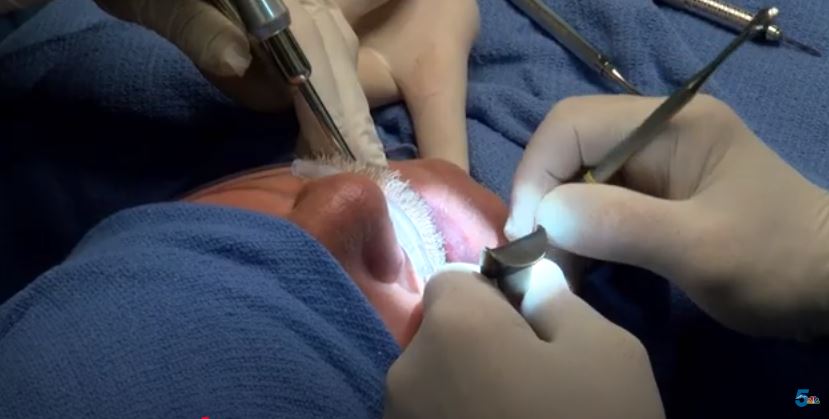Paying for dental care can feel like navigating through a maze, with rising premiums and confusing coverage options. Dental insurance can often be a headache for many people. To ease this challenge, more and more dental offices are offering in-house dental plans as a simpler and potentially more affordable option. But are these plans really worth it?
Let’s dive into the details and see whether an in-house dental plan is the right choice for you.
Are Dental Plans Offered by Your Employer Worth It?
In-house dental plans have grown increasingly popular, especially among those who appreciate simplicity and predictability. These plans often come with lower upfront costs, eliminate the need for claim forms, and let you use your benefits right away.
For individuals who prefer affordable preventative care and don’t want to deal with insurance companies, an in-house dental plan can be a great way to access dental care without complications. However, like any dental care option, in-house plans have both pros and cons. Let’s explore what to consider before signing up for one.
How In-House Dental Plans Work
In-house dental plans differ from traditional dental insurance in several ways. Typically, you pay a set amount either monthly or annually, and in return, you gain access to a variety of dental services such as cleanings, checkups, and emergency exams. Some plans may even offer discounts on more expensive services like crowns, bridges, and veneers.
One of the main benefits of these plans is that you can start using your benefits right away, without having to deal with a waiting period or complex claim forms. This makes them especially appealing to those who need dental care promptly. Additionally, the cost structure is more predictable than traditional insurance, which makes budgeting for dental expenses much easier.
Pros and Cons of In-House Dental Plans
Pros
| Feature | Details |
|---|---|
| Lower Upfront Cost | In-house plans typically have lower monthly or annual fees compared to traditional dental insurance. |
| Simple to Use | No complicated claims process or annual limits. You pay the fee and get care when you need it. |
| Predictable Costs | The cost of services is often more predictable, making it easier to manage dental expenses. |
| Discounts on Services | You often receive discounts on other services like teeth whitening, crowns, and veneers. |
Cons
| Feature | Details |
|---|---|
| Limited Coverage | In-house plans generally focus on preventative care and may not cover major treatments like root canals or surgeries. |
| Not Accepted Everywhere | These plans are often only valid at the dental office offering them, limiting flexibility if you move or want to see a different dentist. |
| Not Ideal for Major Work | If you need extensive dental work, you may need to seek traditional dental insurance or pay out of pocket for the services. |
Considerations Before Choosing an In-House Plan

While in-house dental plans offer many advantages, they also have some downsides to consider. One of the biggest limitations is that they may not cover major or specialized procedures. For example, if you need dental work like a root canal, surgery, or orthodontics, you might need additional insurance or out-of-pocket payments. It’s important to read the fine print, as coverage can vary widely between practices.
Additionally, even though in-house plans offer more predictability in cost, there may still be some services that aren’t covered under the plan. If you anticipate needing more extensive care in the future, traditional dental insurance might still be the best option for you.
Another limitation is flexibility. Since in-house plans are usually specific to the dental office that offers them, they may not be accepted at other dental practices. If you change locations or want to visit a different dentist, you may have to find a new plan or insurance.
When Should You Use Both Insurance and an In-House Plan?
In some cases, combining an in-house dental plan with traditional dental insurance may provide the best of both worlds. An in-house plan can cover routine preventive care like cleanings and checkups, while insurance can handle more serious procedures like fillings, root canals, or crowns. This combination ensures that you have coverage for both simple and more complicated dental needs.
However, keeping both plans will increase your overall cost, so this might be a better choice for individuals who want both convenience and comprehensive protection from high dental expenses.
Is an In-House Dental Plan the Best Option for You?
The decision to choose an in-house dental plan depends on your specific dental needs and financial situation. If you have generally healthy teeth and mostly need preventive care, an in-house plan may be a cost-effective and simple way to keep your dental expenses low. Many patients find these plans very convenient because they are inexpensive, allow immediate use of benefits, and don’t require complicated paperwork.
However, if you anticipate needing more extensive dental work or want comprehensive coverage for a wide range of services, traditional dental insurance might still be the better option. Ultimately, the best choice depends on your dental health needs and how you prefer to manage your care.
For more information about in-house dental plans and how they differ from traditional insurance, visit Golden Proportions Marketing.
Disclaimer: This article is for informational purposes only and should not be considered as medical advice. Always consult with a qualified healthcare provider or dental professional for guidance regarding dental insurance and treatment options.